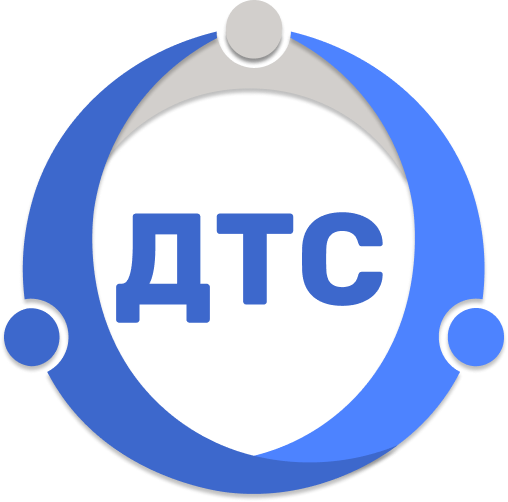Projects

The E-Government Portal
The e-Government Portal (Egov.kz) was launched in April 2006. At the initial stage, the website provided only information on public services. Over the years, the website has been transformed, work has been carried out to launch socially significant services and payment services on the e-Gov Portal. Apart from personal data, "Military Service Status", "Electronic Health Passport", "Employment", "Electronic House Register" sections and other information about the user are available at Personal Account.
Purpose: reducing the corruption factors when delivering public services to the population by excluding the interaction of citizens with government agencies and by increasing the transparency of the activities of government agencies and reducing the red-tape when citizens and business structures request public services. The idea is to switch to the provision of composite services based on the one stop-shop principle, i.e. when only one request from a user is needed to get services online with no need to visit several departments and when proactive service mechanisms are available, which means that there is no need to apply for the services at all.
Advantages: online delivery of public services has a number of undeniable advantages. First of all, it saves time and resources. Secondly, it is convenient and easy for people both from rural areas and cities as well as outside the Republic of Kazakhstan to obtain public services. Every year, new socially significant public services are automated on the e-Gov Portal for the convenience of citizens.
Achievements: in 2019, on the 25th Anniversary of Kaznet, the e-Gov Portal became the winner of the "Best State Online Project" award. Pursuant to the National Action Plan for the implementation of the Address of the Head of State to the People of Kazakhstan as of October 5, 2018 "Increasing the welfare of Kazakhstanis: increasing incomes and quality of life" for the transfer of public services to electronic format, more than 90% of public services on the e-Gov Portal were automated.
- 10th place in the UN Online Service Index (UN EGDI OSI subindex 2024) (1st place among the CIS countries);
- 24th place in the UN E-Government Development Index (UN EGDI 2024) (1st place among inland countries);
- 6th place in the SUBINDEX PSDI (World Bank GTMI - Group «A») 2022.

e-Licensing
The "e-Licensing" IS state database was designed to automate licensing processes, issuance of permits and ensure an effective, transparent mechanism of information interaction between government agencies, i.e. licensors and business community of the Republic of Kazakhstan. The system was implemented under the Program for creation and development of e-Government in the Republic of Kazakhstan and state program for accelerated industrial and innovative development of the Republic of Kazakhstan for 2010-2014.
Implementation of the "e-Licensing" IS state database project was carried out in two stages within 7 years:
1st stage: 2008 - 2012 - automation of licensing processes;
2nd stage: 2012 - 2014 - automation of permits.
Since 2015 to date, maintenance and update of the "e-Licensing" IS state database has been carried out.
The e-Licensing portal (http://elicense.kz) provides individuals and legal entities (citizens and organizations) with the following capabilities:
- provision of information on the procedure for obtaining a license and permits, familiarization with qualification requirements and the list of required documents pursuant to laws and regulations;
- submission of an electronic application for receipt, re-issuance of a license and permit. Thus, due to integration and optimization, there is no need to submit an organization's statutory documents, identity documents of an applicant, and other information that can be obtained from the state information systems;
- electronic payment of the state fee through e-Gov Payment Gateway when submitting an application for a license and an appendix thereto, as well as permits;
- reduction of the amount of documents required for obtaining a license and permits;
- control of the terms and statuses of consideration of electronic applications;
- monitoring of application processing process and in case of refusal, capability to obtain a substantiated refusal pursuant to laws ands regulations of the Republic of Kazakhstan;
- obtainment of public service delivery result online, also licenses and permits issued based on applications submitted in paper or through CSC are stored on the portal in electronic format;
- storage of electronic documents in a personal account;
- provision of reports on licenses to a government agency in electronic form;
- verification of a license and permits validity on the public domain website.
In 2011, the status of electronic and paper licenses has been equated, and since 2012, a legislative requirement for issuing licenses only in electronic form has been introduced, which ensured 100% participation of government agencies and allowed the second stage of the project to begin, which was development of a system for converting permits into electronic format.
To date, due to optimization and reduction of the number of permits and licenses by government agencies, 445 automated services are available on the "e-Licensing" IS state database (87 - licenses, 302 - permits, 55 - notifications, 1 - SPP certificate). Since the beginning of automation, the following amounts of documents were issued: licenses - 684 884; permits - 12 468 049; notification - 4 489 732.
Achievements:
On May 13, 2013, the results of the WSIS Project Prizes 2013 international competition, which was held within the framework of the World Summit on the Information Society, were announced in Geneva. Electronic licensing system of the Republic of Kazakhstan (www.elicense .kz) became the best project in the "e-Business" category. The success story of the project was published on the official resource of the International Telecommunication Union.
Since January 2014, due to optimization of the licensing process, submission of applications for all types of licensing in declarative form - "information forms" has been launched. That is, this form enables applicants to fill-in the information manually and reduces the number of documents that need to be attached.
In July 2022, a capability was automated to use a one-time code in the "e-Licensing" IS state database for individuals.
In July 2022, work was carried out on a new authorization/registration method in the "e-Licensing" IS state database under integration between the "e-Licensing" IS state database and mGOV through connection to the services published on Smart Bridge.
Automation of new capability to authorize and sign the service by QR code.
In November 2022, work was carried out in the "e-Licensing" IS state database to launch a new authorization/registration method by scanning a QR code through mobile device (smartphone) under integration between the "e-Licensing" IS state database and mGOV through connection to the services published on Smart Bridge.

Mobile government
The e-government mobile application «eGov Mobile» is an updated eGov.kz ecosystem for the provision of public services and services to the population through mobile communication devices.
The mobile application allows you to use the digital signature as conveniently as possible by linking the existing digital signature to a four-digit PIN code and the built-in biometrics of your device (Face ID, Touch ID). Having done this once, you cannot be distracted by choosing an EDS and entering a password when logging in and receiving services.
By logging in to the mobile app, you will receive a wide range of services:
- Quick access to Digital Documents;
- Quick access to service lists;
- QR and CROSS - signing;
- Life situations;
- A personal account with information about the address of your residence, available real estate, car, etc.;
- A catalog of services that includes government services, information services, payments and notifications;
- Signing of electronic documents using PUSH notifications;
- Mobile electronic services via SMS messages.
By means of SMS messages, it is possible to use the following functionality:
- Proactive services;
- SMS notifications for various events, including notifications about the status of applications;
- Assessment of the quality of services.
To view personal data in eGov mobile, a personal account has been developed, where personal information from various state databases on family, personal documents, social status, pension savings, employment, business, my cards, information about cars and real estate, land plots, administrative fines, etc. is displayed. Information about the validity period of the EDS is also available. Application settings, frequently asked questions, virtual assistant, contact us, report an error are also available here.
The e-government mobile application «eGov Mobile» is available for download on Google Play (required Android version 5.0 or later), AppGallery, AppStore (required iOS version 11.3 or later).

Open Government
The development of Open Government began in 2013. Today, Open Government is developing further under implementation of the Fifth Institutional Reform on the Formation of an accountable state, including the implementation of 94th and 96th steps. The Law of RK "On Access to Information" as of November 15, 2015 and the Law of RK "On Informatization" as of November 24, 2015 were adopted.
Open Government comprises: Open Data; Open Laws & Regulations; Open Dialogue; Open Budgets and Assessment of the Government Agencies Efficiency.
Open Data portal is a platform where public data of government agencies is published in machine-readable format, which allows the public to receive reliable open data from information holders in a convenient form, including for the purposes of re-use.
Open Laws & Regulations portal is a single platform for discussion of draft laws and regulations. Everyone can express their opinion and take part in the development of laws and regulations.
Open Dialogue portal is a platform for establishing effective feedback between government agencies and society.
The portal includes:
- blog platform of heads of quasi-public sector organizations,
- online conferences;
- "Polls" system.
Open Budgets portal was launched to facilitate citizens' understanding of "budget" in the state and to promote the development of an active civic position through public control over budget spending.
Assessment of the Government Agencies Efficiency is a portal aimed at strengthening interaction between citizens and the government, which contains information on the assessment of the government agencies efficiency as well as reports on the achievement of target indicators of strategic plans and programs for the development of territories.

The single platform of government agencies
The single platform of government agencies` websites, which integrated all the websites of local executive bodies and central government agencies into a single and convenient structure, has become a one-stop window for information obtainment and population interaction with the government agencies. The platform is a constructor of over 3400 websites, where an employee of a government agency without developer skills can post news in 1 minute and even create a website in 15 minutes via a personal account.
The platform is available at Gov.kz and has a mobile version, a user-friendly interface and intuitive navigation. For the convenience of citizens, the website was designed following the human-centered approach and public services were structured depending on "real-life situations", so that citizens can get instructions and order public services online.
Website: www.gov.kz

Smart Data Ukimet
Smart Data Ukimet is an information and analytical system designed for collection, storage and comprehensive analysis of data accumulated in the information systems of government agencies.
Currently, 100 databases of government agencies` information systems are integrated with the SDU IAS, which are replicated daily into the «Data Lake» to create decision-making systems based on big data.
In cooperation with the Ministry of Digital Development, Innovations and Aerospace Industry of the Republic of Kazakhstan, over 20 statistics dashboards have been implemented aimed at providing the Government with objective analytical data needed to make management decisions in accordance with the concept of Data Driven Government.
All personal and sensitive data of citizens and businesses is encrypted and sent to the data lake in the form of a depersonalized array.
The most significant case on the SDU platform is the «Digital Family Card» designed to monitor the social welfare of families nationwide with aim to identify the most socially vulnerable segments of the population and target them with state support measures.
The SDU IAS significantly improves the capabilities of government agencies in data management, which in turn contributes to more effective decision-making and more accurate analysis of current situation.
The SDU IAS was ranked TOP 3 (highly recommended) in the Open Source Adaptation category of the prestigious Future of Government Awards 2023. Among 300 projects from 50 countries, the SDU project was noted and recommended for use in other countries by the organizers, the United Nations Development Programme (UNDP), Public Digital and the AWS Institute.

E-Gov Gateway
The e-Government Gateway is an information system intended for integration of state and non-state information systems (through e-Gov External Gateway) within the framework of e-Government.
The Project goal: to ensure integration of e-Gov informatization objects pursuant to the Law of the Republic of Kazakhstan "On Informatization" as of November 24, 2015 No. 418-V.
Purpose: used to optimize the information exchange between information systems of government agencies and information systems available on the Internet through e-Gov External Gateway.
Integration of information systems is performed according to the Rules for integration of e-Gov informatization objects approved by the Order of Acting Minister of Information and Communications of the Republic of Kazakhstan as of March 29, 2018 No. 123.
The e-Government Gateway was launched in 2009.

e-Gov Payment Gateway Integration
If previously one had to visit a bank, today services can be paid online via the following options:
- Payment for tax and other mandatory payments to the budget using e-Gov portal, mGov web-application,Taxpayer`s Account,CSC IIS, e-Licensing national database, Judicial Account, State Assets Register web-portal of State Property and Privatization Committee under Ministry of Finance of the Republic of Kazakhstan and other government agencies` information systems, second-tier banks, “KazPost” JSC and online requests;
- Service for paying of fines for traffic and administrative violations;
- Service for paying for public utility services in Almaty and Astana;
- Service for paying for mobile communication;
- Service for replenishing deposit/credit account in “ZhylStroiSberBank Kazakhstan” JSC;
- Service for repaying of debts on enforcement proceedings in “KazPost” JSC.
32 second-tier banks and “KazPost” JSC are connected to e-Gov Payment Gateway services. Interaction of e-Gov Payment Gateway with government agencies` information systems is performed in compliance with the following documents:
- The Rules of e-Gov Gateway and e-Gov Payment Gateway Integration with Information Systems, which were approved by the Resolution of Acting Minister of Investment and Development of the RoK as of January 28, 2016, No. 104;
- The Rules of Providing Information to Government Agencies and Courts Regarding the Payments and Transfers Made, Especially On the Ones Connected With Paying to the Budget; Allocation of Mandatory Pension Contributions, Mandatory Professional Pension Contributions, and Paying for Public Services, which were approved by the resolution of Minister of Information and Communication of the RoK as of December 9, 2016, No. 276.

"E-notary" Unified Notary Information System
Since October 1, 2010, the unified notary information system has been put into operation. A notary public is a person certifying documents and transactions. The citizens of the country apply to a notary public for a vast number of issues, for instance to certify a copy of the diploma, documents when traveling abroad, when buying or selling an apartment, drawing up an inheritance. If previously citizens spent a lot of time collecting the necessary certificates, searching for the nearest notary public office, obtaining the necessary documents, now, with introduction of the "e-Notary" system, a lot of time was saved for both citizens and notary publics.
Connected: over 4,600 notary publics
Available data verification services:
- Search for notary publics;
- Checking the electronic registration of real estate;
- Search for legal successors;
- Checking a QR code;
- Verification of power of attorney;
- Checking inheritance cases
Integration with 22 systems and banks.
Speed and efficiency: Reduction of number of documents requested from citizens and verification of their authenticity. The e-Notary system is integrated with other state information systems and databases. It is integration that helps notary publics in Kazakhstan to request information about individuals, legal entities and real estate online when performing notarial actions.
Transparency:All the notary public actions, all transactions and requests for information are recorded in the system.
Optimization of work for notary publics: The system maintains an electronic register of all notarial actions performed, and this makes it easy to find the necessary information. The system generates notary publics` reports submitted to the Notary Chamber automatically.
Quality of work:The portal regularly publishes instructions on how to work with the e-Notary system.
User-friendliness:On the homepage of the portal, citizens can find information about all the notary publics in the region, their addresses and contact details, information about their licenses.
Accessibility: Using the system, citizens of the Republic of Kazakhstan can familiarize with a legislative framework that regulates notarial activities, as well as contacts of territorial chambers and justice bodies in charge of notary issues in the country.
Elimination of barriers and bureaucracy: Currently, in order to process most transactions, notary public clients in Kazakhstan do not need to present such documents as an address certificate, certificate of real estate, certificate of no criminal record and legal capacity. It is enough to have only a national ID card with IIN. This became possible thanks to the e-Notary system, which interacts with various systems and databases.
Security when making transactions: Thanks to the e-Notary system, citizens of the Republic of Kazakhstan can be sure that if they applied to a notary public, no illegal and fraudulent transactions will be made. For instance, when making a real estate purchase and sale transaction, a notary public can verify the authenticity of a seller's documents and his/her rights to real estate, as well as make sure that there are no encumbrances or arrest on it.
Convenience: You can register the rights to real estate directly from the notary public office. Immediately after acquisition of real estate, citizens can register their titles thereto without contacting other authorities. After concluding a contract between the parties for real estate, a notary public using the e-Notary system, sends a request for registration of titles to real estate to a government agency.

e–Zan Komegi
Pursuant to Article 24 of the Law of the Republic of Kazakhstan as of July 5, 2018 No. 176-VI "On Advocacy and Legal Assistance", National Information Technologies JSC developed the information system called "E-Zan Komegi" Unified Information System of Legal Assistance (hereinafter: e–Zan Komegi).
The purpose of the e–Zan Komegi project is to provide citizens with qualified online legal assistance, automate legal activities as well as activities of legal consultants.
Advantages of e–Zan Komegi:
- providing citizens with effective legal assistance at the consultation stage through entering data on individuals and legal entities through e–Zan Komegi;
- providing lawyers and legal advisers with state-of-the-art tools for verifying data on individuals and legal entities in the course of legal proceedings;
- accelerating evidence collection when one performs duties as a defense attorney or representative;
- automating delivery and accounting of state guaranteed legal assistance online;
- enabling courts and law enforcement agencies to check the status and authority of lawyers and legal advisers online;
- maintaining the membership register in the Chamber of Legal Advisers;
- capability of obtaining an extract from the electronic register of legal advisers;
- capability of obtaining an extract from the register of self-regulating organizations on the accepted notification on the beginning of self-regulating organization activities established based on mandatory membership (participation);
- informational interactions on requests for information to government and non-government organizations required for execution of legal activities as well as activities of legal advisers;
- maintaining web-portals of the local Bar Council and Chamber of Legal Advisers;
- legal reference system containing a set of legal information that enables quickly finding the best solution to any problem related to legislation, as well as analyzing large amounts of information.

Smart Bridge
The Smart Bridge project is an information and communication service in the form of Display of Services platform aimed at facilitating the integration of information systems between government agencies and private businesses and contributing to a more effective information exchange and improving overall transparency and coordination.
The Display of Services platform provides solutions to the following tasks:
- creation of a single catalogue of services available at the information systems of government agencies and private sector with technical description of each service and contact details of a service owner and an information system developer;
- automation of the processes for obtaining access to services published on the Display of Services portal through e-Gov Gateway;
- automation of the process for creating new information services in information systems through connectors (service constructor).
Paper turnover has been reduced and database integration processes have been accelerated, resulting in nearly 4,5 thousand integrations have been carried out since 2020.
The TOP-5 most popular second-tier banks use this solution and provide public services in their applications. As an example of how the platform works, many banks can notify customers of fines and taxes, re-register vehicles, issue digital mortgages, while reports to the tax service can be sent through accounting systems.
The following results were achieved by implementing the Smart Bridge:
- the entire process has been reduced from 3 months to 1 month;
- previously, there were 8 approvals, now there is only one;
- from 8 letters to zero;
- from 4 technical documents to 1 online form.
The Smart Bridge portal (Display of Services) website: sb.egov.kz.

National Certification Authority of the RK
National Certification Authority of the Republic of Kazakhstan (hereinafter: NCA of RK) is a certification authority providing digital signature tools and registration certificates to individuals or legal entities for generation of electronic documents in state and non-state information systems. The purpose of NCA of RK establishment was to provide reliable authentication and digital signature means to legal entities and individuals of the Republic of Kazakhstan.
NCA of RK was put into commercial operation on October 29, 2008.
The purpose of NCA of RK establishment was to provide reliable authentication and digital signature means to legal entities and individuals of the Republic of Kazakhstan.
With the aim of preventing the spread of coronavirus infection in the country, the public service was launched on March 16, 2020 at e-Gov Portal called “Issuance of digital signature remotely”, the service eliminates the need to visit CSC and operates via video identification based on Digital ID technology.
A testing completion act was received certifying NCA of RK compliance with information security requirements as of October 7, 2020.
At the moment, 1516 information systems have received a developer kit for further integration with NCA of RK.
Website: pki.gov.kz

Certification Authority of the government agencies of the RK
Certification Authority of the government agencies of the Republic of Kazakhstan (hereinafter: CA GA of RK) is a certification authority servicing government agencies, officials from government agencies in information systems and other state information resources of government agencies of the Republic of Kazakhstan.
CA GA of RK was put into commercial operation on May 29, 2007.
A mobile workplace of a civil servant has been implemented on a tablet with capability of signing electronic documents from the Single e-Workflow System using registration certificates obtained at CA GA of RK.
Внедрено программное обеспечение, позволяющее подавать государственным служащим ЦГО и МИО онлайн заявления на выпуск\отзыв регистрационных свидетельств УЦ ГО, при помощи веб-интерфейса.
Software has been implemented that enables civil servants from central government agencies and local executive bodies to submit online applications for issuance/revocation of CA GA registration certificates using the web-based interface. A testing completion act was received certifying CA GA of RK compliance with information security requirements as of October 7, 2020.
Website: ucgo.gov.kz

Root Certification Authority of the RK
Root Certification Authority of the Republic of Kazakhstan (hereinafter: RCA of RK) is an information system designed to build a hierarchy model of interaction between certification authorities of the Republic of Kazakhstan, build a system of trust to public keys used to verify digital signatures, protect communication channels (key encryption) and authentication in electronic document management systems, e-commerce, trade, etc., requiring guaranteed protection of electronic transactions and access to data via the Internet and other networks.
RCA of RK is intended to build a hierarchy model of interaction between certification authorities of the Republic of Kazakhstan.
RCA of RK was put into commercial operation on March 30, 2011.
A testing completion act was received certifying RCA of RK compliance with information security requirements as of October 7, 2020.
Accredited certification authorities:
- Certification authority of government agencies of the Republic of Kazakhstan;
- National Certification Authority of the Republic of Kazakhstan;
- «Gamma Technologies» Scientific Research Laboratory LLP;
- «Business & Technology Services» LLP;
- «Kaspi Bank» JSC;
- «Halyk Bank of Kazakhstan» JSC;
- «Eurasian Bank» JSC;
- «BTS Digital» JSC;
- Kazakhstan Interbank Settlement Center under the National Bank of the Republic of Kazakhstan;
- «Bank Home Credit» JSC;
- «Bank Center Credit» JSC;
- «Forte Bank» JSC;
- «First Credit Bureau»;
- «Bank Freedom Finance Kazakhstan» JSC;
- «Biometric» LLP;
- «Kolesa» JSC;
- «Jusan Bank» JSC;
- «Bereke Bank»
Website: root.gov.kz

Trusted Third Party of the RK
Trusted Third Party of the Republic of Kazakhstan (hereinafter: TTP of RK) is an information system confirming the authenticity of foreign digital signatures and digital signatures issued on the territory of the Republic of Kazakhstan under the framework of cross-border interaction. Currently, TTP of RK is undergoing interstate testing.
A software and hardware complex verifying the authenticity of foreign digital signatures and digital signatures issued on the territory of the Republic of Kazakhstan under the framework of cross-border interaction.
TTP of RK was put into commercial operation on November 19, 2015.
Current areas of TTP of RK operation:
1) EEU IS;
2) Electronic public (municipal) procurement;
3) Regional commonwealth in the field of communication;
4) Information exchange between TTP of RK and TTP of foreign states.
Website: dts.gov.kz.

Government Agencies Intranet Portal
Objective: Government Agencies` Intranet Portal (GAIP) involves development of single information environment and automation of government agencies` business processes.
GAIP`s tasks and areas:
- creation of a tool for the development of civil service`s corporate culture;
- facilitation in networking between government employees from different agencies;
- knowledge sharing within agencies and between government agencies and, therefore, improving the quality and efficiency of government employees` performance.
GAIP`s major business processes:
- Coordination of the Republic of Kazakhstan’ draft laws and regulations;
- Monitoring of execution of governmental action plans, including government agencies` operation plans;
- Monitoring of the number of government employees ;
- Reminders on the supervised orders given by Presidential Administration and Prime Minister`s Office to government agencies;
- Joint documentation work online;
GAIP`s supplementary services:
- Integrated e-mail;
- “Standards” Database;
- “Documents` Library” Database;
- “Legislation” Database;
- Kazakh-Russian-English dictionary;
- Notice board;
- Calendar with capability of planning the tasks;
- Informers reflecting news feed;
- Instant messaging;
- Kazakhstani government agencies` directory;
- Polling/surveys;
- Forum.
GAIP IS interoperates with the following information systems:
- Single e-Workflow System;
- Presidential Administration`s External Web-Portal IS;
- Government Agencies’ Certification Authority;
- Integrated e-Postal System;
- “Adilet”- database of Kazakhstani laws and regulations;
- “National registry of electronic information resources and information systems” IS and “Depository of software, software codes and technical standard documentation”;
- “Informatization Knowledge Database” architectural portal;
- “e-Kyzmet” IS;
- “Legal Monitoring of Laws and Regulations” subsystem in Ministry for Justice of the RoK corporate portal.
Today, all central government agencies, committees, local bodies and 16 local governments, including those in Astana and Almaty, are connected to GAIP

«Individuals» National Database
The «Individuals» state database is a unified system for registration and storage of information about individuals of the Republic of Kazakhstan required for identification and determination of civil status.
Major goal: Accounting, collection and storage of information on the following: individuals (basic personal data (IIN, full name, gender, date and place of birth, etc.), birth/death certificates, residence address/temporary registration, identity document, family ties (spouse and children), legal capacity, exclusion of IIN, missing persons, etc.
Tasks:
- Record registration of individual identification numbers;
- Provision of information about individuals with indication of an individual identification number to the information systems of government agencies of the Republic of Kazakhstan, in particular, combining all the systems of registration of individuals in the Civil Registry Offices, documentation department, social insurance department, medical care department, pension provision department, tax department and other services into a single logical complex.
December 13, 2007: The commissioning certificate for the «Individuals» state database was signed.
The «Individuals» state database is integrated with 118 information systems of departments and government agencies of the Republic of Kazakhstan.

«Legal Entities» National Database
The «Legal Entities» state database is an information system designed to maintain the national register of business identification numbers. It also ensures assignment of BIN to legal entities, branches and representative offices in cooperation with the departmental systems of the National Statistics Bureau under the Agency for Strategic Planning and Reforms of the Republic of Kazakhstan and the State Revenue Committee under the Ministry of Finance of the Republic of Kazakhstan.
Project implementation milestones:
- 2003 - 2007: design, implementation and launch into commercial operation;
- 2008 - 2009: system maintenance;
- 2009 - 2010: trial operation and deployment of the modernized system;
- 2011 - to the present: commercial operation, maintenance of the modernized information system;
Tasks of «Legal Entities» state database project:
- Record registration of business identification numbers;
- Automated gathering, storage and processing of information with aim to provide up-to-date and reliable information about legal entities, branches, representative offices;
- Unambiguous identification of legal entities via BIN;
- Integration of information resources belonging to various departments with regard to identification of legal entities;
- Establishment of a centralized database storing and providing up-to-date and reliable information about legal entities;
- Prevention of illegal registration of "fake companies" through matching of the submitted registration information with the data from the "Individuals" state database ;
- Prevention of registration for legal entities whose participant is a head or founder of an inactive legal entity.
The «Legal Entities» state database is integrated with 112 information systems of government agencies and other organizations of the Republic of Kazakhstan.

Civil Registry Office Information System
The "Civil Registry Office" information system is designed for registration of vital records of the population of the Republic of Kazakhstan during certain events (birth, death, marriage/divorce, adoption, paternity establishment and change of surname/name/patronymic), while information about birth and death of individuals is sent to the "Individuals" state database.
Major goal: Registration, accounting, processing and storage of vital records of the population of the Republic of Kazakhstan (birth, marriage/divorce, paternity establishment, adoption, change of surname/name/patronymic, death), as well as provision of data to the "Individuals" state database and information systems of government agencies.
The Civil Registry Office IS task is to register vital records of the population of the Republic of Kazakhstan during certain events (birth, death, marriage/divorce, adoption, paternity establishment and change of surname/name/patronymic.
System development milestones:
- On August 13, 2007, the Civil Registry Office IS was put into permanent (commercial) operation, including the capability to register vital records on birth;
- On April 14, 2008, the capability to register vital records on adoption, paternity establishment and change of surname/name/patronymic was introduced;
- On May 1, 2008, the capability to register vital records on death was added;
- On June 1, 2008, the capability to register vital records on marriage/divorce was added.
The Civil Registry Office IS is integrated with 25 information systems of departments and government agencies of the Republic of Kazakhstan.

Security Operations Center
On March 6, 2019, National Information Technologies JSC (hereinafter: NIT JSC) established the Security Operations Center (hereinafter: SOC) based on the license No. 72 issued by the National Security Committee of the Republic of Kazakhstan.
The Security Operations Center of NIT JSC – is a close-knit team of professionals, consisting mainly of analysts, operators and information security engineers, which regardless of the time of day, ensures 24/7 information security of e-Gov information and communication infrastructure as well as government agencies` information systems connected to SOC.
SOC tasks:
- round-the-clock monitoring and detection of information security incidents;
- response to information security incidents;
- provision of uninterrupted receipt and storage of log events, as well as their transfer to the National Coordinating Center for Information Security (hereinafter: NCCIS);
- identification of IS vulnerabilities, penetration testing of customers` servers and infrastructure;
- analysis of the source code;
- provision of the detailed reports on the work done by SOC to customers;
- provision of recommendations to customerw to ensure information security and minimize possible risks.
Advantages of SOC under NIT JSC:
- round-the-clock operation of SOC (24х7х365);
- placement of SOC information security systems and infrastructure in the Server Center of government agencies, which results in a high level of fault tolerance, as well as confidentiality, availability and integrity of customer data;
- availability of access to the Single Government Agencies` Intranet (hereinafter: GAs` Intranet), which makes it possible to arrange a reliable and secure connection of customers` informatization objects to SOC through the available communication channels of GAs` Intranet;
- availability of international certificates: ISO/IEC 27001 Information Security Management System and its integrations with ISO 9001Quality Management System and ISO/IEC 20000 Service Management;
- close interaction with NCCIS, including on the issues of monitoring the provision of protection and safety to ensure functioning of informatization objects;
- proven experience in connecting complex and critical informatization objects of various government agencies such as the Ministry of Finance of the Republic of Kazakhstan, the Ministry of Justice of the Republic of Kazakhstan, the Ministry of Digital Development, Innovations and Aerospace Industry of the Republic of Kazakhstan and so on to SOC.

Regional e-Government Gateway
The information system "Regional gateway of e-Government" is aimed to deliver local governments' e-services to citizens through integration of akimats' information systems with e-Government components.
Implementing the typical solution will enable unifying akimats' activities on service delivery to citizens, introducing the uniform service delivery standard, the uniform application forms, and the uniform mechanism for service delivery, which would enable:
1) simplifying the process of service delivery to citizens and businesses;
2) shortening the gathering documents process and the number of queues;
3) ensuring the transparency of e-service delivery business process through notifying the applicants of the statuses of services;
4) enlarging the number of services delivered to citizens in electronic format.
Through the System, the socially important services have been implemented, such as: "Inclusion of pre-school age children in waiting list for kindergarten"; "Registering and queuing the citizens in need for housing from public housing fund"; and the most popular public services and functions of education departments, archives, housi9ng and utilities sector, employment and social programs, and internal policy departments.
The project`s indicators in 2016:
- 99% coverage of all cities and regions of the Republic of Kazakhstan;
- 17 public services and 5 services, 2 republican-wide e-registers operate (e-Register for Custody and Guardianship, e-Register for Private Subsidiary Farm;
- within 10-months of 2016, 1,946,600 local governments` public services have been delivered via the regional e-Gov Gateway (which is 42 % more as compared to 2015), among which e-Gov Portal amounted to 46%, Citizen Service Center – 34% and local governments – 20%.

Single e-Workflow System of government agencies
Improvement of efficiency and transparency for government agencies` documentation management through unification of departmental and interdepartmental technological processes of documentation support:
- reducing delivery time for electronic documents;
- reducing time for registration and search of documents;
- arranging business processes for the documentation management of the Republic of Kazakhstan;
- guaranteed delivery of electronic documents (electronic notification on delivery is sent to a sender).
The number of electronic documents sent through SEWS by central and local executive bodies is 80.34 % and 79.90 % respectively.
In order to implement Clause 62 “Transfer of government agencies to cloud workflow” of Action Plan for implementation of “Digital Kazakhstan” State Program approved by the Decree of the Republic of Kazakhstan as of December 12. 2017, 65 government agencies (24 central ones, 38 committees, 1bureau, 2 bodies under Property Management Directorate of RK), 280 local branches of government agencies, 2 local executive bodies were transferred to cloud workflow until March 18, 2021.
Number of users connected to cloud workflow exceeds 17 000.
Currently, transfer of all the government agencies to cloud workflow is in progress.

«Residential Address Registry» Information System
«Address Register» Information System (AR IS) is an integral part and one of the basic components of the e-Government of the Republic of Kazakhstan.
Major goal: Maintenance of a unified register of real estate addresses on the territory of the Republic of Kazakhstan.
Task: Providing information systems of government agencies and authorities with information about administrative-territorial units, their parts as well as with information about location of registered real estate objects on the territory of the Republic of Kazakhstan. Also, ensuring a single format for real estate objects` address data.
The information system purpose:
- providing complete, reliable and updated address information to the information systems of government agencies;
- maintaining address information up-to-date;
- maintaining the history of address changes;
- accelerating the processes of providing information about real estate addresses to interested parties when they receive public services.
System development milestones:
- 2007: launch of system into commercial operation;
- 2012: modernization of the system through transition to a centralized architecture;
- 2013: commencement of address information provision to the information systems of government agencies and state databases;
System users: Local executive bodies of regional, city and district levels (commissions for onomastics, architecture and urban planning departments), employees of the National Statistics Bureau under the Ministry of National Economy of the Republic of Kazakhstan.
The AR IS is integrated with 57 information systems of government agencies and other organizations of the Republic of Kazakhstan.

Government Intranet
Currently, Government Intranet has the following infrastructure:
The ground segment of Government Intranet covers the distributed fiber-optic network in Astana, as well as urban networks in the regional centers of the Republic of Kazakhstan and Almaty, Shymkent.
The organization of urban networks is carried out using IP/MPLS technology at the speed of 1 Gbit/s to each subscriber (government agency), up to 100 Gbit/s of internal core bandwidth in Astana and 10 Gbit/s in regional centers.
The technical solution for network construction meets the following requirements:
- high network reliability level no less than 99.95%;
- assurance of high security for network resources;
- service quality maintenance and service level management;
- control over network resources and planning their utilization.
MPLS technology was chosen as a major technology for data transmission network. Based on this technology, each government agency obtains a distributed isolated network.
The space segment of Government Intranet covers the entire territory of the Republic of Kazakhstan. The Company's remote terminals support the bandwidth of reverse channels from 512kbit/s to 8 Mbit/s. Modern day standards of satellite broadcasting of data transmission (DVB-S2X ACM) are supported. Satellite channels are encrypted with a valid active license. The network infrastructure ensures secure communication. Security includes 3 major capabilities: •Authentication •Confidentiality •Integrity.
The wireless segment of Government Intranet covers 179 district centers and 11 cities of regional significance of the Republic of Kazakhstan and has the data transmission channel capacity from 512 Kbit/s to 20 Mbit/s. The communication scheme allows district centers transmitting data in the direction of the regional and republican node.
Fiber-optic communication lines
Currently, separate fiber-optic communication lines with a total length of 958,135 m are organized in the regional centers of the Republic of Kazakhstan as well as in Astana, Almaty, Shymkent.

Data Center
Government agencies` Data Center was commissioned on August 18, 2010. Government agencies` Data Center complies with the 2nd resilience level under TIA-942 standard, i.e. resilience 99.749% (the allowed downtime of 22 hours per year).
The main goal of the «Data Center» project is to create an effective centralized model for the provision of IT services for government agencies, as well as the effective management and development of e-Gov infrastructure.
Tasks:
- Providing continuous operation of Data Center`s infrastructure;
- Creating the required technical conditions (power supply, conditioning, security, etc.) for layout of government agencies` server/telecommunication equipment;
- Providing Data Center`s services (collocation, dedicated ones).

«Electronic Mail Service of Government Agencies of the RK
Based on the Order of Presidential Executive Office of the Republic of Kazakhstan No. 07-7.43 as of April 27, 2011 and the Office of the Prime Minister of the Republic of Kazakhstan No. 21-27/2215 as of June 01, 2011 on the creation of interdepartmental electronic mail system of government agencies (hereinafter: GA), as well as pursuant to the Information Security Concept of the Republic of Kazakhstan until 2016 approved by Decree of the President of the Republic of Kazakhstan as of November 14, 2011 No. 174, there was a need to create an electronic mail system of government agencies of the Republic of Kazakhstan.
The Project goal: to provide government agencies with a secure system ensuring guaranteed level of service as well as secure electronic mail exchange capabilities.
The Project tasks:
- arranging a unified corporate mail system in government agencies;
- ensuring its fault tolerance;
- providing safety and confidentiality of information.

The integrated information system of the Public Service Centers s
The integrated information system of the Public Service Centers (hereinafter referred to as the PSC IIS) is designed to automate the process of providing services to the population (individuals and legal entities) through the Non-Commercial Joint Stock Company “State Corporation “Government for Citizens”, as well as relevant ministries and departments.
Project implementation timeline:
- 2008 - initiation (creation) - stage 1;
- 2010 - trial operation - stage 2;
- 2011 - commercial operation - stage 3;
- 2012–2013 – development of IIS PSC
- 2014-2018 - support of IIS PSC
The goal of the project is to improve the quality of public services provided to the citizens of the Republic of Kazakhstan through the Public Service Center.
The purpose of creating the IIS PSC is to increase the efficiency of the work of the Public Service Centers by accelerating the processes of providing services to individuals and legal entities. Increasing the convenience of citizens receiving the services of state bodies is a priority for the development of public services. Automation of the provision of services to the population will create the necessary prerequisites for the transition to a qualitatively new level of state planning and control in this area. The introduction of an integrated system for automating the activities of Citizen Service Centers will significantly increase the efficiency of the PSC, will allow building a powerful and flexible system for managing citizens' appeals in the "one-stop" mode, will speed up the process of processing requests from the population and will organize advanced monitoring and control over the implementation of regulations. At the same time, the PSC IIS will become an organic addition to the already implemented solutions for automation of the PSC and will allow the most effective implementation of the “one-stop-shop” principle for any state body interacting with citizens through the PSC, becoming a single point of access and information management for the provision of services to the population. Thus, the problem of optimizing the activities of state bodies is solved.







